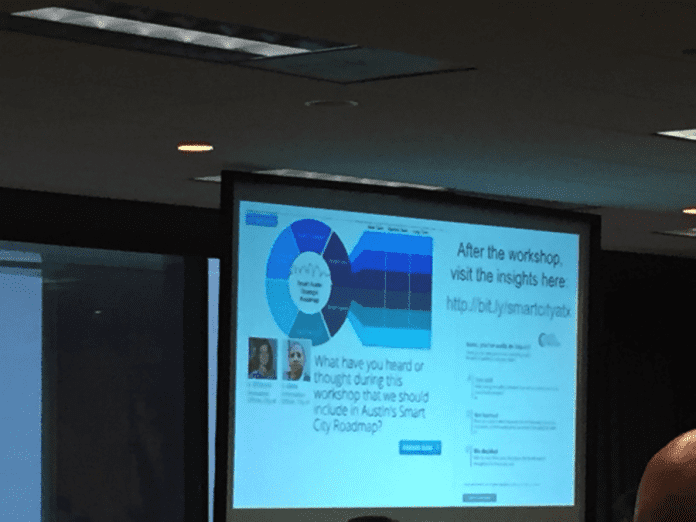Austin, Texas is the first of the five winners of the Smart Cities Council’s challenge grant winners to host a readiness workshop and begin working actively with the Smart Cities Council. Stuart Cowan, chief scientist of the Smart Cities Council kicked off Austin’s workshop with an overview of the smart city development process. He defined a smart city as “a city that uses information and communications technology to enhance its livability, workability and sustainability.”
“Austin is growing faster than any U.S. city,” said Cowan. “How do you stretch infrastructure that may be aging, how do you make it smarter?”
Technology is just part of the answer, Cowan said, but it is a cornerstone. Smart city technology layers include instrumentation and controls, the connectivity layer, interoperability, security and privacy, and analytics. He noted that the connectivity layer needs to encompass data processing and that this does not always mean data will move to the cloud. Cowan said that edge computing, or “fog computing,” will be key to smart cities. He also said security is an absolute, but privacy comes in different configurations. Each city’s citizens should have input on that city’s unique privacy rules, Cowan said.
Beyond technology, Cowan said there are many other elements to a successful smart city strategy. These include policy and governance, which are two separate things. Policy refers to decisions about how smart city solutions will be implemented and regulated, and governance refers to the individuals within an organization who will ultimately be responsible.
Financing is of course critical before any smart city project can get off the ground. Austin CityUP, the group charged with advancing the city’s smart city initiatives, will hold a meeting this week to focus on business and funding models for new smart city efforts.
Cowan noted that transportation will be a key element of Austin’s smart city transformation. Austin Energy has already set a goal of net zero emissions by 2050, and Cowan suggested that the city’s vehicle fleet might follow suit. Austin envisions a transportation system that is electric, autonomous and shared.
As a smart city challenge grant winner, Austin will receive an estimated $250,000 in in-kind benefits from several companies. AT&T will provide IoT starter kits, Telit will share its IoT platform and Dow Building and Consruction will conduct a building audit.
After the Austin workshop, insights will be posted here. The other four challenge grant winners – Indianapolis, Miami, Orlando, and Philadelphia – will hold their workshops in the coming months.

